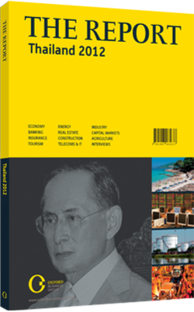OBG talks to Vorapol Socatiyanurak, Secretary-General, Securities and Exchange Commission (SEC)

Interview: Vorapol Socatiyanurak
What is the scope of reforms for Thailand’s securities laws and the role of the SEC?
VORAPOL SOCATIYANURAK: Our mission is to enhance the sector and protect investors, while developing our capital markets to meet regional and global standards. To do this we must strengthen Thailand’s regional and economic leadership and pushing market competitiveness.
The capital markets have many dimensions. The first is the private equity fund market, the market for funding young high-potential businesses. This is very important for developing any economy. For example, in the US companies like Facebook and Google were funded this way at the start. The second stage of capital markets is the primary market, or initial public offering market. The third stage is the secondary market, where people hold and sell shares to each other. We mainly see our role as regulating via development, since our capital markets are still in their early stages compared to more advanced markets. We have 40 years of experience but we will need to build on that in the future.
How has the SEC changed its approach to take advantage of market conditions?
VORAPOL: We have changed our approach a bit. We are more proactive: we now reach out and act before things happen. The economy has changed a lot and there are many fluctuations, such as the problems in Europe. We understand why capital has flown into Thailand in significant volumes in early 2012. This is a good chance for us. So this is our proactive approach: prepare for the worst, but hope for the best.
We talk to all stakeholders, even in the provinces. In addition to regulator vigilance, we need to add more preventive mechanisms to our enforcement. We have moved towards a promotion role also, reaching out to all stakeholders and expanding investor base.
Finally, we want to be a premier, top-ranking capital market for this region. We can be a regional centre, as Thailand is in a good geographic position, connecting neighbouring markets together. In our vicinity we have half of the world’s population and some of the strongest growth rates around, due to India, China and ASEAN. Thailand is the economic bridge for the whole region.
What financial innovation is the SEC promoting?
VORAPOL: The SEC has four areas of financial regulations, the second of which is financial instruments. We try to promote innovation here, but without compromising the protection of investors. Financial instruments are necessary vehicles for anyone who needs funding, or anyone seeking risk management tools. So equity-like instruments are also being promoted.
For instance, we announced an infrastructure fund in November 2011 following a resolution by the cabinet that exempted individual investors and the funds from relevant tax and fees (e.g. dividend tax and transfer fees). For example, a power plant company in need of more funding for additional plants can issue equity, which dilutes shareholding and earnings per share. If they want to avoid this they can use an infrastructure fund instead by transferring all the future cash flow in the contract they hold with the Electricity Generating Authority of Thailand into the fund, and use the proceeds to invest in new power plants.
Infrastructure funds are very important for our economy, as they allow the private sector to replace spending by the government, which can reserve its public funding for priorities like the education system, social welfare, and health care. Our scheme involves eight categories of funds: expressways, the rail system, electricity, water supply, airports, seaports, telecommunications and alternative energy. Thailand needs $3bn-4bn a year to develop infrastructure because of its location as an economic bridge for the region.
Another instrument we are considering is real estate investment trusts (REITs) for hotels, supermarkets, malls and their projects. REITs are financial instruments allowing investment in pools of real estate. Unlike property funds, REITs allow more flexible investment and leverage. Thailand is very promising in terms of real estate.
You have reached the limit of premium articles you can view for free.
Choose from the options below to purchase print or digital editions of our Reports. You can also purchase a website subscription giving you unlimited access to all of our Reports online for 12 months.
If you have already purchased this Report or have a website subscription, please login to continue.

